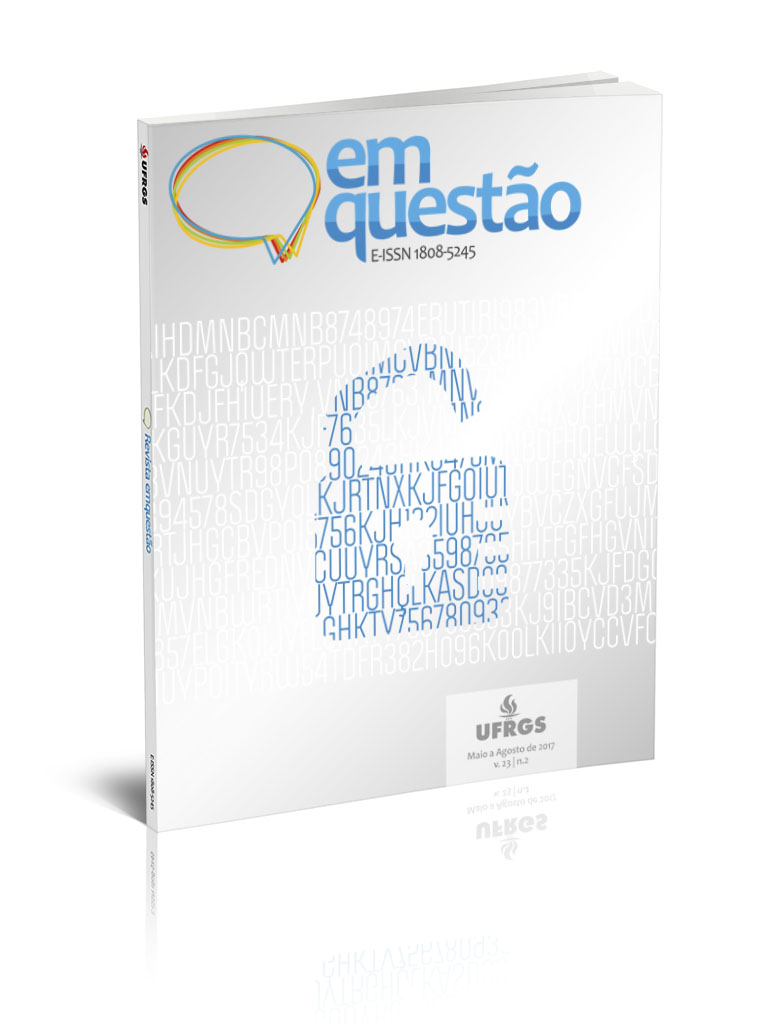Mechanisms of jurisprudence search: an instrument for the knowledge organization and recovery of information in the virtual legal environment
DOI:
https://doi.org/10.19132/1808-5245232.146-166Keywords:
Organización y representación del conocimiento. Los motores de búsqueda. Entorno jurídico virtual. Recuperación de información.Abstract
In the virtual legal environment it makes extremely necessary to arrange legal knowledge through the activities of specialized librarians and retrieve legal information for all legal professionals. The overall objective of this study is to demonstrate how the new jurisprudential search engines of major Legal portals in Brazil have become effective tools for Knowledge Organization and Information Retrieval in recent years. This is a bibliographic and documentary research design with a qualitative approach, with the corpus analysis in selected portals of Brazilian courts.It was specifically the case law of search engines have been little studied by the Information Science through Theses and Dissertations on the national and international levels. This study shows that in the last years of 2013, 2014 and 2015 the new jurisprudential search engines (The Regional Labor Court of the 23th Region/Mato Grosso, the Court of Justice of the State of Mato Grosso, the National Council of Justice and the Federal Regional Court of the 2nd Region/Rio de Janeiro and Espírito Santo) have become effective tools for Knowledge Organization and Information Retrieval in virtual legal environment due to the immediacy of the responses, the search precision and refinement of the results.Downloads
References
BARATA, Manoel Silva. Pesquisa em fontes de informação jurídica disponível na internet: curso de extensão universitária – Faculdade de Direito da UERJ. 2009. Disponível em: <http://www.infolegis.com.br/wa_files/Barata-Manoel.pdf>. Acesso em: 14 mar. 2016.
BRASIL. Tribunal Regional do Trabalho (23. Região). Pesquisa. 2016a. Disponível em: <http://www4.trt23.jus.br/pesquisajulgados/?tipo=ACORDAOS>. Acesso em: 9 mar. 2016.
BRASIL. Tribunal Regional do Trabalho (23. Região). TRT/MT disponibiliza consulta jurisprudencial aos processos no PJe. 2013. Disponível em: <http://portal.trt23.jus.br/ecmdemo/public/trt23/detail?content-id=/repository/collaboration/sites%20content/live/trt23/web%20contents/Noticias/trtmt-disponibiliza-consulta-jurisprudencial-aos-processos-no-pje>. Acesso em: 9 mar. 2016.
BRASIL. Tribunal Regional Federal (2. Região). Jurisprudência. 2016b. Disponível em: <http://www10.trf2.jus.br/consultas/jurisprudencia/>. Acesso em: 14 mar. 2016.
CASTRO, Cláudio de Moura. A prática da pesquisa. São Paulo: McGraw-Hill, 1977.
CONSELHO NACIONAL DE JUSTIÇA (Brasil). Nova versão do PJe contará com mecanismo de busca de jurisprudência. 2015. Disponível em: <http://www.cnj.jus.br/noticias/cnj/79486-nova-versao-do-pje-contara-com-mecanismo-de-busca-de-jurisprudencia>. Acesso em: 14 mar. 2016.
GIL, Antônio Carlos. Como elaborar projetos de pesquisa. 5. ed. São Paulo: Atlas, 2010.
GOMES, Hagar Espanha; GUIMARÃES, Ludmila dos Santos. Organização do conhecimento e recuperação da informação na era das tecnologias digitais. In: SEMINÁRIO NACIONAL DE BIBLIOTECAS UNIVERSITÁRIA, 16.; SEMINÁRIO INTERNACIONAL DE BIBLIOTECAS DIGITAIS, 2., 2010, São Conrado. Anais... São Conrado, 2010. Disponível em: <http://www.sibi.ufrj.br/snbu2010/pdfs/orais/final_313.pdf>. Acesso em: 14 mar. 2016.
LINDOSO, Alisson Neres; SERRA, Ivo da Cunha; GIRARDI, Rosário. ONTOINFOJUS: um modelo de domínio baseado em ontologias para o acesso à informação na área jurídica. In: ENCONTRO DE INFORMÁTICA DO TOCANTINS, 5., 2003, Palmas. Anais... [S.l.: s.n.], 2003. p. 251-260. Disponível em: <http://arquivo.ulbra-to.br/ensino/43020/artigos/anais2003/anais/ontoinfojus-encoinfo2003.pdf>. Acesso em: 10 out. 2016.
MATO GROSSO. Tribunal de Justiça. Jurisprudência. 2016. Disponível em: <http://www.tjmt.jus.br/jurisprudencia/>. Acesso em: 9 mar. 2016.
MATO GROSSO. Tribunal de Justiça. TJ lança novo mecanismo de busca de jurisprudência. 2014. Disponível em: <http://www.tjmt.jus.br/Noticias/36436>. Acesso em: 9 mar. 2016.
MONTEIRO, Silvana Drumond et al. A tradução intersemiótica dos mecanismos de busca no ciberespaço. Informação & Informação, Londrina, v. 18, n. 2, p. 37-59, maio/ago. 2013. Disponível em: <http://www.uel.br/revistas/uel/index.php/informacao/article/view/16158/13070>. Acesso em: 8 ago. 2016.
RIO GRANDE DO SUL. Tribunal de Justiça. Bloqueio de resultados em mecanismo de busca. Apelação Cível nº 70060794393 (n° CNJ: 0272002-86.2014.8.21.7000). Apelante: Google Brasil Internet Limitada. Apelado: Natalia Noronha Siegmann. Relatora: Desembargadora Mylene Maria Michel. Porto Alegre, 9 de julho de 2015. Disponível em: <http://omci.org.br/jurisprudencia/46/bloqueio-de-resultados-em-mecanismo-de-busca/>. Acesso em: 30 out. 2016.
TOMAÉL, Maria Inês et al. Fontes de informação na internet: acesso e avaliação das disponíveis nos sites de Universidades. 2000. Disponível em: <http://www.snbu.bvs.br/snbu2000/docs/pt/doc/t138.doc.> Acesso em: 14 mar. 2016.
TOMAÉL, Maria Inês et al. Práticas de inovação do bibliotecário no ambiente virtual. Encontros Bibli, Florianópolis, v. 19, n. 39, p. 83-112, jan./abr. 2014.
Downloads
Published
How to Cite
Issue
Section
License
Copyright (c) 2017 Em Questão

This work is licensed under a Creative Commons Attribution 4.0 International License.
Authors who publish with this journal agree to the following terms:
Authors will keep their copyright and grant the journal with the right of first publication, the work licensed under License Creative Commons Attribution (CC BY 4.0), which allows for the sharing of work and the recognition of authorship.
Authors can take on additional contracts separately for non-exclusive distribution of the version of the work published in this journal, such as publishing in an institutional repository, acknowledging its initial publication in this journal.
The articles are open access and free. In accordance with the license, you must give appropriate credit, provide a link to the license, and indicate if changes were made. You may not apply legal terms or technological measures that legally restrict others from doing anything the license permits.













